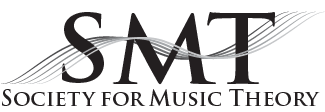Hello!
If you would like to participate in discussions, please sign in or register.
Categories
In this Discussion
- Jeanne bamberger October 2018
- Carson Farley February 2019
Most Popular This Week
Turning a theory fundamentals course into gen ed.
Hello colleagues,
I'm about to revise our theory fundamentals syllabus as part of a proposal to add this course into our general education curriculum. The course is already being taught to mostly non-majors, so I'm hoping that being part of the CUNY gen ed. will allow even more students to take the course.
My question to you: have you had experience with teaching a music theory for non-majors course as a general education class, with course outcomes that are also aligned with critical thinking skills?
I am trying to satisfy two outcomes: 1) that students can demonstrate their knowledge of major scales, minor scales, key signatures, intervals, and triads (all lower level recall / knowledge skills on Bloom's taxonomy); and 2) that students also are able to interpret and assess a variety of sources, evaluate evidence, and produce well-reasoned arguments supported by evidence.
I've been teaching this class in a way that really only satisfies the first goal. In my thinking about how to revise the course, I'm wondering if anyone has had experience with such a conversion, and what kinds of assignments / projects might successfully bring the nuts-and-bolts, more abstract theory concepts (esp. for non-musicians) together with the kinds of critical thinking outcomes that form a part of a balanced gen. ed curriculum?
Final idea: I think there might be something to the idea of using recent copyright infringement cases (e.g. Blurred Lines and Marvin Gaye), scaffolding the skills needed to both present music theory concept to peers (i.e. a jury) but to also analyze the merits of a particular copyright argument, supported by evidence.
Perhaps this is also a relevant topic in public music theory?
All ideas and input are appreciated. Thanks!
George
(York College CUNY)
p.s. For your reference, here at CUNY, the gen ed. courses in the "creative expressions" category need to satisfy the following common outcomes:
• Gather, interpret, and assess information from a variety of sources and points of view.
• Evaluate evidence and arguments critically or analytically.
• Produce well-reasoned written or oral arguments using evidence to support conclusions.
SMT Discuss Manager: smtdiscuss@societymusictheory.org

Comments
Hello: It just so happens that I am revising my book, Develping Musical Intuitions, to speak to the audience of students you are talking about. I originally thought of the material as a beginning music theory book, but I am now changing the focus to the gen ed students. If you are interested, please send me a message and I'll give you more details.
Jeanne Bamberger
jbamb@mit.edu
It would be valuable to show non musician students how to access musical resources available to general audiences that facilitate a better understanding of musical topics. For example, internet theory sites like 12Tone, Rick Beato (which has a multitude of topics ranging from advanced theory to pop music subjects, film scoring, record production, musical criticism of most styles), online scores that can be followed with the music, graphic pattern scores, access to and basic manipulation of free music software like Muscore 2, Audigy, basic instruction of music technology, properties of sound physics, (midi/audio), types of software: notation, production, audio, etc. There's nothing more valuable than actually doing projects and touching the current level of available (free) tools and technology that are used in the creation of music in addition to lectures on music and general outlines that omit manipulating the actual subject matter.